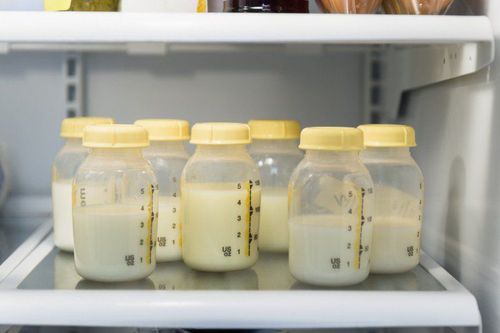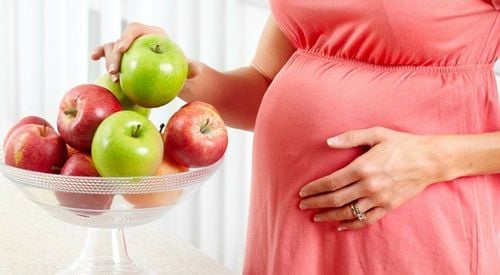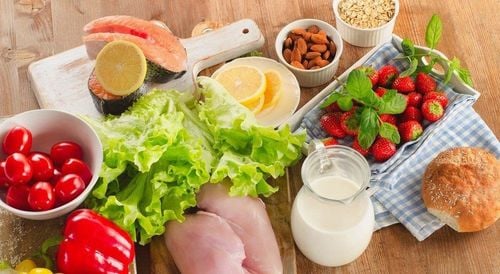Despite all efforts to care for them, children can get a cough, cold, or runny nose an average of 8 to 10 times a year. Although most cases of children's cough do not require specific treatment, parents can help their children get well soon with dietary notes.
1. What should children eat when they have a cough?
Coughs and colds are common adverse health events in young children. Accordingly, keeping young children comfortable and well-nourished during their illness is very important, helping them to increase their resistance when fighting viruses.
During this period, doctors often recommend that parents let their children rest more, limit running and playing outdoors, drink enough water, and eat enough meals. Diluted fruit juice, filtered water, soups, and vegetable broths are great ways to supplement the necessary fluids for children. If your child has a fever, vomiting, or diarrhea, follow the pediatrician's recommendations to replace electrolyte fluids with dosed solution packets. Older children can be given herbal teas with honey and lemon.
However, many parents are still worried about what their children should eat when they have a cough as mentioned above. Here are some suggestions on what to feed children when they are sick, sneezing, coughing, and have a runny nose:
1.1. Feed children some fruit
uicy fruits. These are not only full of vitamins and minerals to support good health and immunity but also contain a large amount of water to help support the child's fluid needs. Fresh, sliced frozen fruit is convenient and easy to thaw, ready for eat; it also stores better, and lasts longer than fresh fruit.
In addition, parents can add fresh milk or low-fat yogurt and blend smoothies with fruit cups. This is an ideal way to add extra energy and nutrients and make it more delicious to your child's diet while they are sick and maybe a picky eater.
1.2. Let children choose their favorite foods
Children's appetite will decrease significantly when they have a cough, fever, or runny nose. Therefore, parents can force their children to eat a little more to quickly overcome the illness, but not too much.
When children are sick, they may lose their appetite or eat less because of a sore throat. Parents should feed their children small meals based on their favorite foods. Regular small meals in moderate amounts will be easier to digest but still help meet the necessary energy needs.
1.3. Try the chicken soup
Try making chicken soup using the leftovers from last night's roast chicken. Accordingly, do not worry when children have a cough; should they eat chicken or not because a bowl of warm, gentle chicken soup is a "classic" remedy for coughs and colds. Moreover, a bowl of soup will also help provide your child's fluid needs.
To make the chicken soup more filling, patients can add some rice, noodles, or pasta along with cooked, chopped, and pureed vegetables. A few spoons of oatmeal can also be used to thicken the soup while it is simmering as well as provide additional nutrients.
2. What should a baby with a cough not feed?
Contrary to the foods that should be given to children when they have a cough mentioned above, here are 4 foods parents need to avoid for children to receive:
2.1. Sugary foods
Avoid sugary foods to prevent children from getting viral infections.
Simple sugars are generally not good for children, even when they are healthy. When consumed in excess, this condition can reduce white blood cells, increasing the risk of developing infections and other related diseases.
Therefore, soft drinks, chemically sweetened drinks, candies, chocolates, cold drinks, and other processed foods are some of the foods that parents should avoid when their children have a cough.
2.2. Dairy products
en their condition.
Thus, parents should not give their children dairy products such as cheese and ice cream when they have a cough to avoid mucus production. However, breast milk and infant formula are exceptions. If the baby is still exclusively breastfed, the amount of milk and the number of feedings per day should be increased. In the case of babies who are already eating solid foods, it is better to give them alternative nutritious foods such as porridge, soup, or baby cereal.
2.3. Foods rich in histamine
Some mothers worry that children with coughs should eat shrimp or not. The answer is to be careful because shrimp contain a large amount of histamine. This is a chemical compound related to increased production and secretion of stomach acid, which can easily irritate the airways and cause coughing.
Therefore, a diet rich in histamine during the changing seasons can have a negative impact because this can create mucus in the airways, leading to health problems, and can even cause children to cough, wheeze, have difficulty breathing, or swallow food.
Accordingly, patients should let their children avoid using mayonnaise, dried fruit, mushrooms, vinegar, bananas, spinach, soy sauce, pickles, strawberries, papaya, fermented foods, smoked fish, yogurt, eggplant; seafood such as sea fish, shrimp, and foods containing artificial preservatives to minimize the amount of histamine entering the body.
2.4. Fried foods and fast foods
Fried foods and fast foods are mainly prepared by frying in oils derived from animal products. This can be a serious problem for children in winter.
On the other hand, fried foods or foods containing excess oil can also cause saliva and mucus to thicken, which can lead to discomfort in the throat, making children more likely to cough. However, in general, such foods are very harmful to young children and should be avoided even when they are completely healthy.
In conclusion, what to eat and what to avoid when a child has a cough is a great concern for parents when taking care of a sick child at home. When parents know the foods to avoid listed above, they will have a way to choose the right food, not only helping their children eat more, suit their taste, and overcome the disease quickly, but also helping to quickly relieve their coughs. If the child has a prolonged cough, parents should take the child to see doctors early so that they can accurately diagnose the health problem the child is facing and provide timely and effective treatment.
Please dial HOTLINE for more information or register for an appointment HERE. Download MyVinmec app to make appointments faster and to manage your bookings easily.
Reference articles: eatright.org, babycenter.in, dnaindia.com, medlatec.vn, Thaythuocvietnam.vn, vnexpress.net













